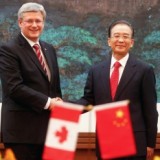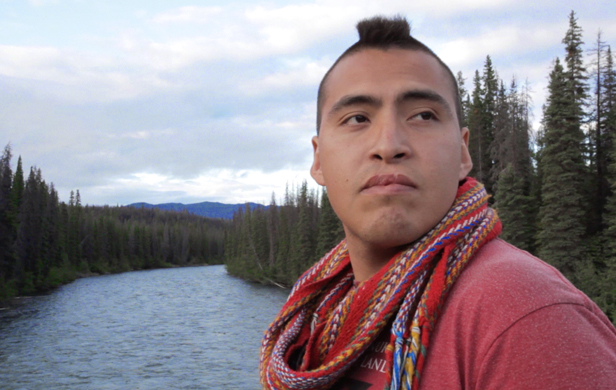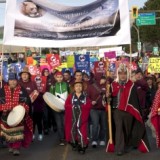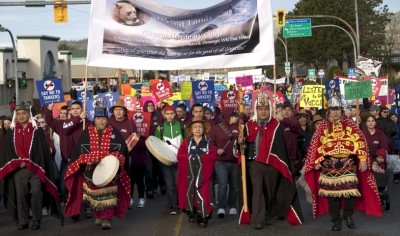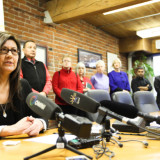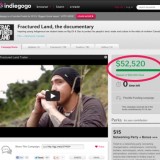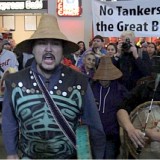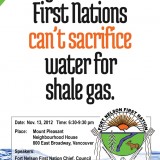The following statement was issued by the Union of BC Indian Chiefs in response to the Harper Government’s rebuttal to a case being brought by the Hupacasath First Nation against the proposed Canada-China Trade Deal.
Last week the Federal Court of Canada heard oral arguments from the Hupacasath First Nation and the Harper Government on Hupacasath’s legal action regarding the Canada-China Foreign Investment Promotion and Protection Agreement (FIPPA). In response to First Nations concerns of infringement on their inherent Aboriginal Title and Rights and lack of consultation the Hupacasath First Nation was compelled to launch a court challenge under Section 35 of the Canadian Constitution.
The Government of Canada argued that there must be causal link between the ratification of FIPPA and the adverse effects on Hupacasath First Nation Title and Rights to proceed with consultation. Furthermore, the Harper Government held that no Aboriginal group had requested consultation with respect to any of the Canada’s 24 FIPPAs with other countries or that negotiations with respect to Canada-China FIPPA had been available to the general public via the Department of Foreign Affairs and International Trade website since 2008.
“It is well-documented that FIPA was negotiated in secret and First Nations and Canadians first heard about this agreement when it was signed in 2012. This agreement is significantly different then the other 24 FIPPA’s Canada references. China already has and will continue to grow its investments, assets and projects in Canada and consequently we take all the risk in this agreement. It will allow foreign investment to trump the Title and Rights of First Nations and take full advantage of Canada’s much weakened environmental standards,” said Chief Bob Chamberlin, Vice-President of Union of BC Indian Chiefs.
“It is unbelievable that Canada has argued that consultation requires a ‘request’ from a First Nation. The Constitution and common law require the Harper Government to meaningfully consult and accommodate our interests where a decision has the potential to infringe our inherent Title and Rights as guaranteed by section 35 of Constitution Act, 1982. Consultation does not require a ‘request,’ written or otherwise to trigger the Harper Government’s fiduciary duty to consult First Nations,” Councilor Marilyn Baptiste, Secretary-Treasurer of the Union of BC Indian Chiefs stated, “Canada endorsed the United Nations Declaration on the Rights of Indigenous Peoples in 2010 which states that ‘Canada shall consult and cooperate in good faith with indigenous peoples in order to obtain their free, prior and informed consent before adopting and implementing legislative or administrative measures that may affect them”, clearly Canada has failed to do so in this matter.”
Grand Chief Stewart Phillip, President of the Union of BC Indian Chiefs concluded, “First Nations and Canadians are extremely concerned with FIPPA and its wide implications including infringements on our inherent Title and Rights and the ability to allow foreign corporate interests to take advantage of the weakened environmental protections to proceed with the rapid expansion of resource development on un-ceded First Nation territories. Through this agreement, China will be granted protection and would thus greatly increase their investment in the development of the Alberta tarsands, pipelines, mining projects and other resource development projects, all at great risk to our Aboriginal Title, Rights and Treaty rights, but ultimately at great cost to the environment that all British Columbians and Canadians share and treasure. We will fight to defend this valued legacy that represents the ultimate birthright of our children and grandchildren.”
